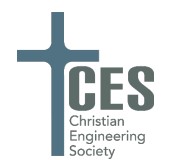Document Type
Paper
Abstract
A substantial impact is being made around the world by Christian university student engineering teams collaborating with Christian mission organizations [1-3]. The application of engineering talents to meeting basic human physical and spiritual needs is perhaps the “highest calling” of engineers. These engineering projects meet basic human needs such as clean water, sanitation, agriculture, power generation, education, healthcare, housing, and disaster recovery. These efforts are complementary to secular humanitarian work done by organizations like Engineers Without Borders, EPICS, IEEE Humanitarian Technologies Board/SIGHT, and the Bill and Melinda Gates Foundation. Lifelong impact is made not only in the lives of the assisted community, but also in the lives of the participating engineering students and faculty. These impacts will be illustrated in this paper by three stories of student teams from NNU Engineering who have teamed with villagers, non-profits, companies, church mission agencies, and even the IEEE to design, fund, construct, train, and follow-up on engineering projects around the world.
Creative Commons License

This work is licensed under a Creative Commons Attribution-Noncommercial-No Derivative Works 4.0 License.
Copyright
© 2024 Stephen Parke. All rights reserved.
NNU Engineering Student Mission Projects from Peru to PNG to Kenya
A substantial impact is being made around the world by Christian university student engineering teams collaborating with Christian mission organizations [1-3]. The application of engineering talents to meeting basic human physical and spiritual needs is perhaps the “highest calling” of engineers. These engineering projects meet basic human needs such as clean water, sanitation, agriculture, power generation, education, healthcare, housing, and disaster recovery. These efforts are complementary to secular humanitarian work done by organizations like Engineers Without Borders, EPICS, IEEE Humanitarian Technologies Board/SIGHT, and the Bill and Melinda Gates Foundation. Lifelong impact is made not only in the lives of the assisted community, but also in the lives of the participating engineering students and faculty. These impacts will be illustrated in this paper by three stories of student teams from NNU Engineering who have teamed with villagers, non-profits, companies, church mission agencies, and even the IEEE to design, fund, construct, train, and follow-up on engineering projects around the world.

